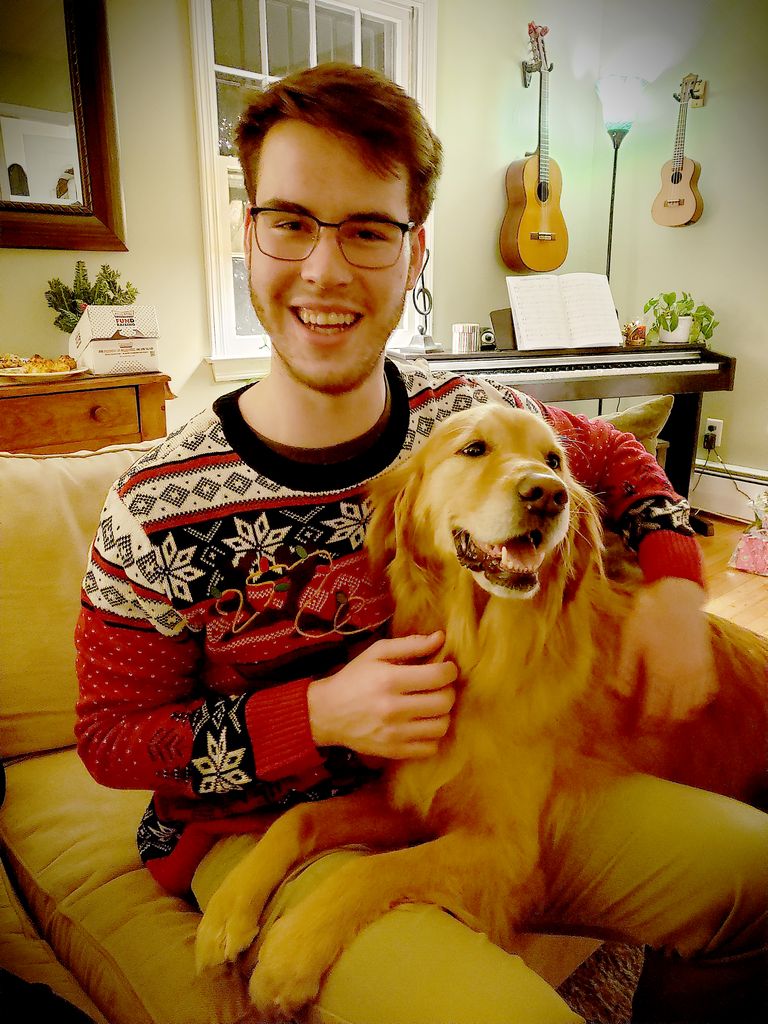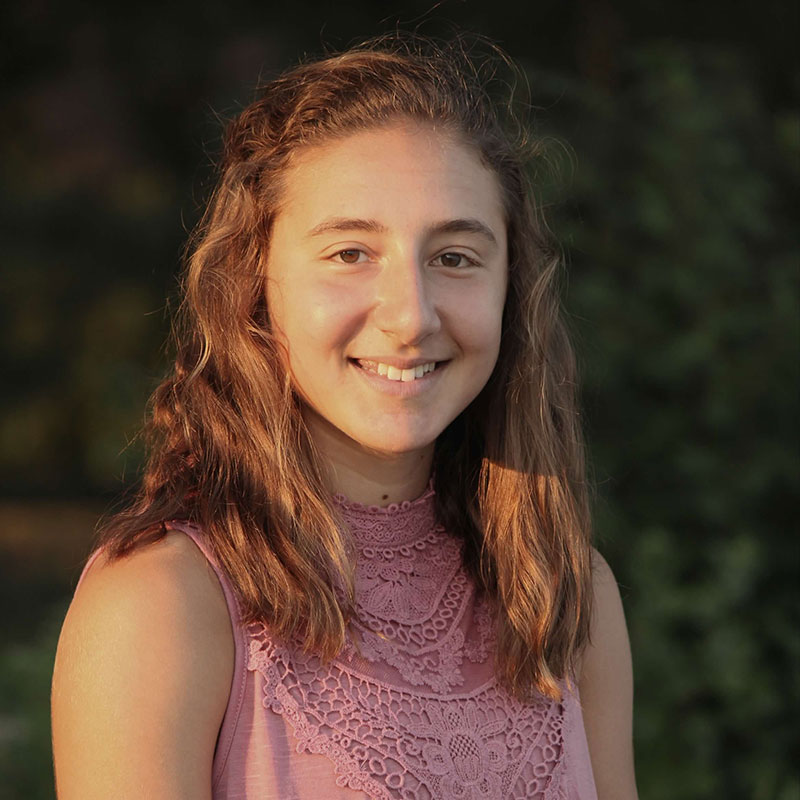Q: When you arrived on campus, did you already have an overriding interest or passion?
A: In high school, I really liked physics and math. I’d heard that you should combine those disciplines and learn engineering. So I applied to BU’s College of Engineering. During my first year, I got connected with people in the physics department. At first I thought maybe I’d just minor in physics, but I ended up shifting gears entirely and changed my major to physics.
I’m also really interested in music. I play tuba, and in high school I was in a marching band, a concert band, and a jazz band. At BU Orientation, I heard the Scarlet Band was pretty neat. I talked to the band director and some current students and they ended up recruiting me. Even before I matriculated, I’d done a week of band camp. It was a great way to get situated at school before I was officially a student. In fact, I didn’t even get to march in Matriculation because I was playing in the parade.
Q: What surprised you in terms of the academic rigor at BU?
A: I started taking some of the more difficult physics classes even before they were required. The classes eventually got very specific in their content. For physics, this meant using a lot of advanced math and other strategies. In the higher-level classes, it’s expected that you already know these techniques or that you’ll figure them out on your own. So a lot of self-guided learning is necessary. Having friends who can work through the material with you is extremely helpful.
I have also been surprised by my non-major requirement classes. I took an ancient Greek history course and I ended up enjoying it a lot more than I thought I would. The professor was really engaging. Going to the lecture was really fun, just to hear him talk about history and see how passionate he was.
Q: Can you talk about an important faculty relationship you developed at BU?
A: I have known Professor David Campbell since my first year when I found him on the Undergraduate Research Opportunities Program (UROP) website; he was looking for student researchers. His work stood out, because it was on the two topics I was most interested in: computer engineering and physics. I kept showing up at his office until I was able to hand him my résumé and shake his hand. I think that showed him that I was dedicated and really wanted the position. I started working for him by compiling knowledge of nonlinear dynamics into Mathematica notebooks, a project which taught me the program Mathematica, which has been invaluable in my career so far. And when I switched into physics, he became my academic advisor. He’s served as a mentor and role model ever since.
Explore more
Q: Can you talk about an experience where you collaborated with others, either in research or academics?
A: I was working over the summer with a very dedicated researcher, who really showed me the ropes of how academia works. He had already published a paper with Professor Campbell, and I joined in to assist with a new topic. We were looking at the time it takes for a system of one-dimensional, nonlinearly coupled oscillators to return near to their initial state (referred to as a Fermi-Pasta-Ulam-Tsingou recurrence). Initially, I was working mostly on obtaining numerical results, but I was eventually able to learn enough to start asking my own questions and ended up writing almost an entire section of the paper myself. Publication was the natural end result for our findings, and we submitted our manuscript to the journal Chaos. After it was reviewed by experts in the field, we were required to make a few small changes before it was eventually published.
Q: Can you pinpoint an aha moment in your academic journey?
A: The research I mentioned earlier was one of the biggest reasons I changed my major. It was a decent amount of computer engineering, which is what I thought I wanted to do, but after doing the research and reading a lot more about the physics, I realized I wanted to focus on the actual nitty-gritty of physics.
Explore more
Q: Did you find other professors who were willing to share their work with you?
A: I’ve had several professors spend one of their lectures talking about the work they’re doing. This was a great way to get students interested in what’s going on all around them, and especially to get them involved with faculty researchers they already know. The physics department is always hosting talks and colloquia with either presentations from BU professors or visiting scholars. These are a great way to learn about really specific topics of research.
Q: How do you envision physics as part of your professional life after college?
A: I’m definitely interested in teaching. Currently, I’m a learning assistant. The professor presents the lectures, but I’m available for more guided questions after the lecture, and to help students with whatever they’re struggling with. I’m able to offer my guidance and experience as someone who has taken the class before.
I also like the idea of going into private industry and using physics directly for research. The UROP office has provided me with funding and credibility to pursue research at BU. The Fellowships Office has also helped me submit applications for awards which have helped both pay for tuition and gain recognition.
Q: Can you talk about a meaningful nonacademic experience?
A: I’ve been in the Marching Band, the Pep Band, and the Scarlet Band. It’s a really great community of people who you can always count on to welcome and accept you. We play a big role on campus, especially at sports games. We might not have football, but we’ve got hockey and basketball, you name it, and the band’s always there. So it’s not just a lot of fun to be at those events and be playing and being loud, but also to be a member of this tight-knit group of really friendly people.
Q: How has BU changed you as a student and as a person?
A: I’ve definitely grown a lot since coming to BU. A big part of being in the city, especially at such an urban campus, is you become independent pretty quickly and start making decisions on your own. I’ve become better at planning and sticking to a plan and working those long hours to fulfill the plan. I also have grown as a researcher and as an intellectual. It’s a very different experience from high school in terms of the resources available, especially all the professors around you. You can just shoot an email to a professor and they’re going to talk with you and be helpful.






